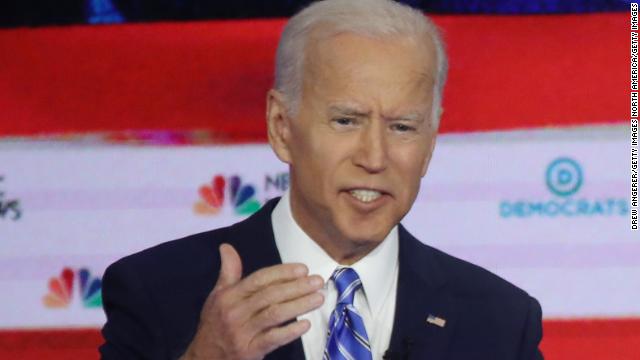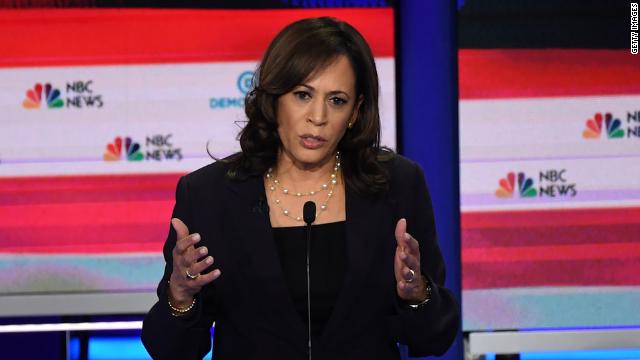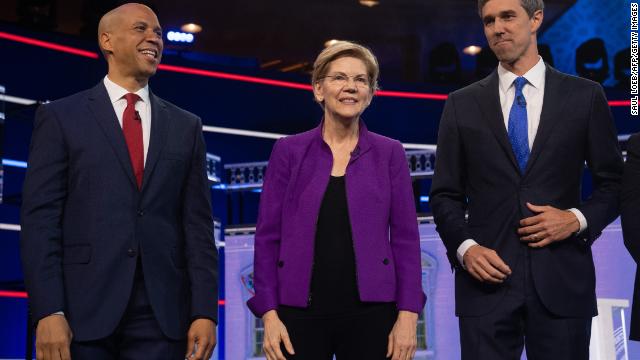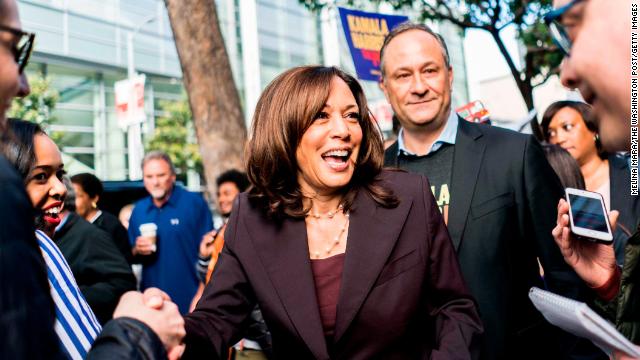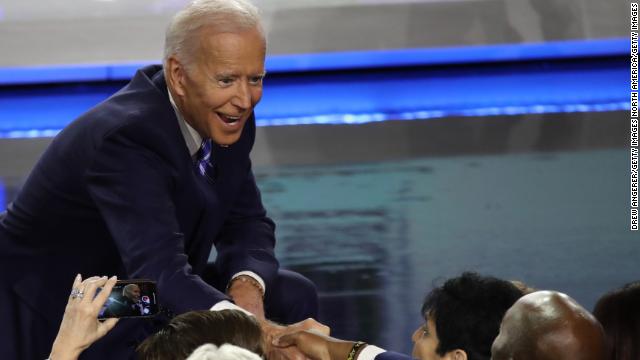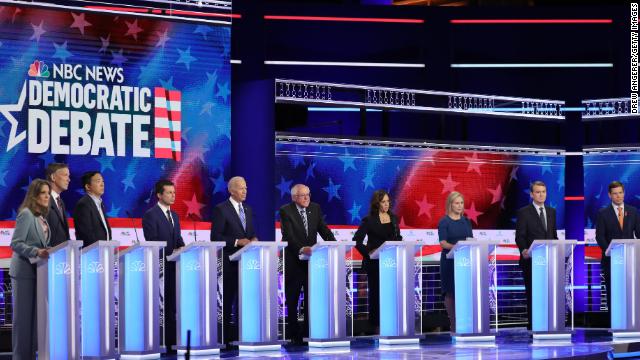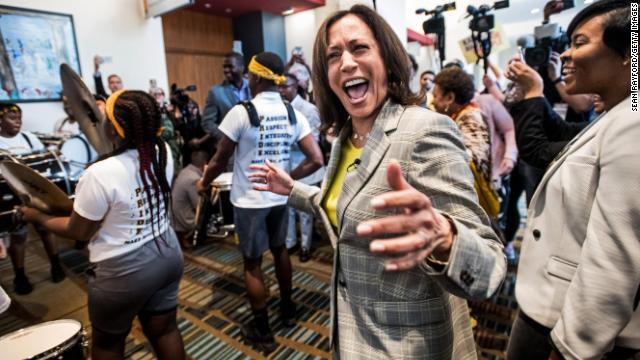Our new CNN/SSRS poll shows movement in the Democratic race after last week's debate. Following a weak performance in last week's debate, Joe Biden has dropped 10 points from 32% in late May to 22% now. Following a strong performance, Kamala Harris has jumped from 8% in late May to 17% now.
Coming in third place is Elizabeth Warren at 15%. Just behind her is Bernie Sanders at 14%.
No other candidate polled above 5%, including big fundraiser Pete Buttigieg, who rang in with just 4%.
Here are a few other takeaways from the poll:
- Harris has seen a significant jump among black voters, while Biden has fallen. Biden declined from 49% in a combined sample of our April and May polls to just 36% now. Harris rose from 6% to 24% in the same period.
- Only 8 of the 24 candidates (those listed above) and Cory Booker, Amy Klobuchar and Beto O'Rourke received the 2% necessary to use this as a qualifying poll towards the September debates.
- A clear plurality of Democratic primary voters and Harris supporters prefer keeping private insurance as a competitor to a government run system than eliminating it.
- Biden is still listed as the most likely to beat Trump at 43%, though that is down over 10 points from a Quinnipiac poll in late April.
- Only 10% of Democratic voters think Harris is best Democrat on the climate crisis, and only 6% think she is best on the economy or health care, which suggests a potential weakness in her candidacy.



